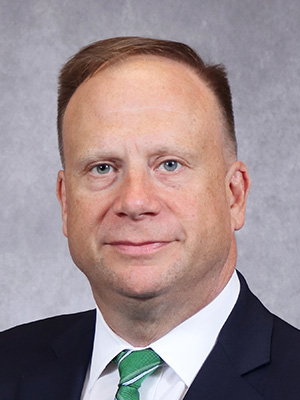Undecided, underdecided, and overdecided
by Mark Largent, vice provost & dean of undergraduate education
 At a recent meeting I attended with the other vice provosts for Undergraduate Education from all the other Big Ten institutions, a colleague from another university introduced me to the concept of “overdecided.” It was one of those instances in which a newly learned term suddenly crystallized how I thought about a problem.
At a recent meeting I attended with the other vice provosts for Undergraduate Education from all the other Big Ten institutions, a colleague from another university introduced me to the concept of “overdecided.” It was one of those instances in which a newly learned term suddenly crystallized how I thought about a problem.
My colleague was discussing the problem of students having to choose their majors while they were discovering more about themselves and learning a great deal more about the occupations that exist in the world today and might exist in the foreseeable future. Undecided and under-decided identifies a student as needing more time and support to explore and learn. A student who was overdecided, he explained, needed support to “unwind their notions about themselves and their futures.” These students sometimes felt they were going backward as they were compelled to revisit and reevaluate their academic directions.
The table discussion that followed focused a great deal on our campus's experiences with overdecided students. Some described how expectations from family members often drove students into overdecision, and many asserted that first-generation students and students from groups that have been historically underrepresented in higher education more frequently find themselves overdecided. Part of this, one colleague suggested, was a pressure on these students to avoid “mere exploration” and to make rapid progress toward graduation.
The fact is that the vast majority of the prospective students who apply to MSU choose a major based on very limited knowledge. Seventy-two percent of students who graduate from MSU changed their majors at least once (50% change it more than once!), and another 18% of students who start at MSU leave without graduating. That means that 90% of the students who checked the box of a given major on their application did not eventually graduate from MSU with that major.
Nonetheless, colleges and universities are designed around the notion that most students start in a major pathway immediately or shortly after they arrive to campus, and they finish in that same pathway. We have assumed that what is actually relatively rare is the norm. As we have worked at MSU to expand advising resources and continuously redesign the university to meet our students’ needs, we continue to support students to explore and avoid the pitfalls of being overdecided.
All of this is why I am especially excited about the big changes that are coming to the most popular major pathway at MSU. Beginning in fall 2024, MSU students who start at MSU hoping to pursue a “business degree,” will start in a new major called Exploring Business Preference and will be advised by advisors in University Advising.
For the last seven years, all students who arrived at MSU hoping to study “business” were coded as Broad pre-admit students, and they imagined themselves on a pre-determined pathway into Broad. As they learned more about themselves and the opportunities available, many of them began to unwind from their state of overdecision. The new arrangement provides a great deal more support for students when they enter MSU and allow valuable time to explore the variety of business-related majors leading to more appropriate degree declaration and progress toward graduation.
Rethinking the introduction to MSU for students with an interest in a career in business has been a very heavy lift, and I want to thank my colleagues in the Broad College of Business and University Advising for their leadership and vision. This summer, we will begin to see the fruits of their labor as thousands of business exploratory students are oriented into MSU and start their exploration.